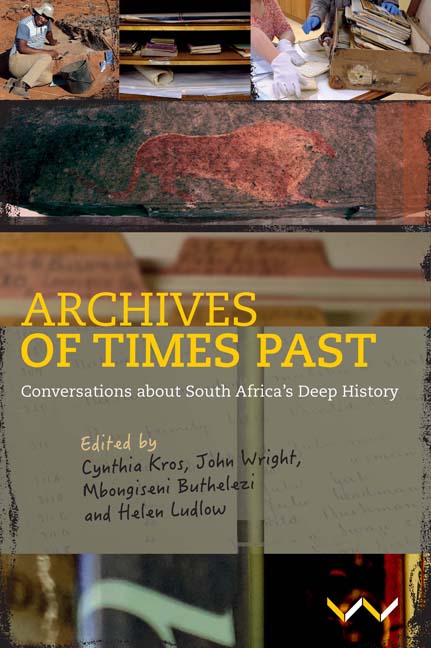Book contents
- Frontmatter
- Contents
- List Of Illustrations
- Acknowledgements
- Editorial Note
- Map
- PART I FIRST THOUGHTS ABOUT THE ARCHIVE
- PART II COMMENTARIES AND CONVERSATIONS
- PART III BECOMING EXPLORERS
- PART IV ENGAGING WITH ARCHAEOLOGY AND ROCK ART
- PART V CONFLICTING OPINIONS
- PART VI FURTHER THOUGHTS
- Glossary
- Contributors
- Index
Chapter 20 - Making Journeys into the Archive
Published online by Cambridge University Press: 26 May 2022
- Frontmatter
- Contents
- List Of Illustrations
- Acknowledgements
- Editorial Note
- Map
- PART I FIRST THOUGHTS ABOUT THE ARCHIVE
- PART II COMMENTARIES AND CONVERSATIONS
- PART III BECOMING EXPLORERS
- PART IV ENGAGING WITH ARCHAEOLOGY AND ROCK ART
- PART V CONFLICTING OPINIONS
- PART VI FURTHER THOUGHTS
- Glossary
- Contributors
- Index
Summary
A BOOK, AND ITS CHANGES OF SHAPE
This book is the product of several years of interaction between the contributing authors and the editors. During this period, it has changed shape several times. At first, we very much wanted to challenge common stereotypes about southern Africa's past before colonial times. (We have written about some of these stereotypes in chapter 3.) We wanted to show that they were based on narrow and misleading ‘colonial’ ways of looking at historical source materials. But our discussions always led us back to the same questions. What actually are the available sources of evidence on this period of history? Where do these sources come from? Who made them, and when, where and why? Why have some sources survived into the present, and others not? What is the nature of the archive on southern Africa's past before colonial times?
So we found ourselves moving on to the idea that we would explore how the archive of the past before colonial times was made, as well as warning our readers about watching out for stereotypes. We started by inviting several scholars to write about well-known books that they and other academics, as well as people outside the university, would consult to find out about history before colonial times. Each chapter in our book would be written by a scholar with a good knowledge of the subject. We asked them to write in a way that non-specialists would enjoy reading.
As our project got under way, and as we talked to our contributors and read what they had written, we came to feel that the book was too narrowly focused. The term ‘archive’ does not refer only to old books about the past. There are many other kinds of archive. So we asked more scholars to contribute chapters that broadened the book's focus. We encouraged them to write in personal terms about how they had discovered a particular archive, and the intellectual journeys they had made in working with it. We wanted to give readers a sense of how challenging it is to do one's own archival research, and also how rewarding it can be. We also hoped that, instead of simply telling readers why certain stereotypes were misleading, we could stimulate their own critical thinking about how to interpret texts on times past.
- Type
- Chapter
- Information
- Archives of Times PastConversations about South Africa's Deep History, pp. 263 - 270Publisher: Wits University PressPrint publication year: 2022



